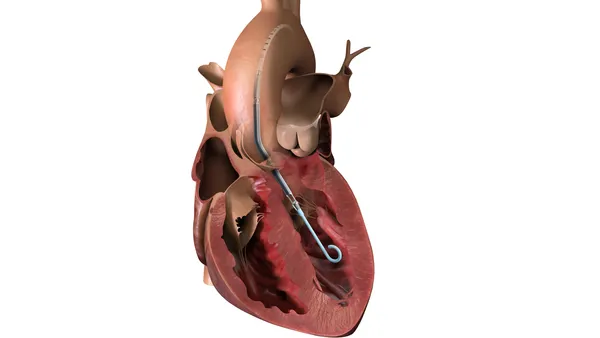Dive Brief:
- FDA has reclassified certain antibody and nucleic acid tests for hepatitis C, enabling products to come to market via the less-burdensome 510(k) pathway for the first time.
- The final orders establish special controls intended to ensure the safety and effectiveness of tests in the absence of the data previously needed to bring the products to market. Lowering the barrier to the market could increase competition in spaces targeted by companies such as Abbott Laboratories and Roche.
- FDA made the changes after holding consultations that drew largely positive responses, with Abbott among the companies to voice support for the reclassifications.
Dive Insight:
The hepatitis C testing markets are currently served by a small number of companies. FDA lists three antibody tests, two of which are sold by Abbott, and six nucleic acid tests from four manufacturers, including Roche. The list is out of date, with DiaSorin receiving premarket approval since it was last updated, but gives an indication of the level of competition in the market.
The experience of reviewing those products has convinced FDA it can reclassify the tests to Class II, and potentially increase competition, without affecting safety and effectiveness. Timothy Stenzel, director of the Office of In Vitro Diagnostics and Radiological Health in FDA's Center for Devices and Radiological Health, set out the thinking behind the regulatory classification changes in a statement to publicize the final orders.
"We are confident that following reclassification, with adherence to the special controls, these devices will continue to provide a reasonable assurance of safety and effectiveness. Additionally, the reclassification may support the potential for more manufacturers to develop these tests, which can increase competition and increase access to these important tests," Stenzel said in the announcement.
A 2019 report by a global health agency Unitaid suggests there is an existing set of companies that could theoretically take advantage of the new path to market. Multiple manufacturers including Beckman Coulter, Bio-Mérieux and Qiagen are listed as having hepatitis C tests that, at the time of the report, had CE marks but not FDA approvals.
Companies that want to enter the U.S. market need to submit a premarket notification, obtain clearance and show compliance with the special controls. The special controls established by FDA include labeling and design verification and validation requirements. Additional controls apply to antibody tests used at the point of care and nucleic acid tests intended for the qualitative detection of hepatitis C RNA.












